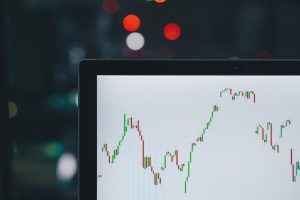In the world of forex trading, it is essential to understand the concepts of bull and bear markets. These terms are frequently used in discussions and analysis of market trends, and it is important for traders to have a clear understanding of what they mean and how they can impact trading decisions.
Bull Market
A bull market refers to a period of time when prices in the forex market are rising. This is typically caused by an increase in demand for a particular currency or group of currencies, which leads to an increase in their value. A bull market is characterized by a sense of optimism and confidence among traders, who expect prices to continue to rise.
Traders who are bullish on a particular currency or currency pair will typically buy in with the expectation of making a profit as the market continues to rise. This can be a risky strategy, however, as markets can also be volatile and unpredictable, leading to sudden downturns and losses.
Bear Market
Conversely, a bear market is a time when forex prices are falling. This is usually caused by a decrease in demand for a particular currency or group of currencies, which leads to a decrease in their value. A bear market is characterized by a sense of pessimism and caution among traders, who expect prices to continue to fall.
Traders who are bearish on a particular currency or currency pair will typically sell off their holdings in order to minimize their losses. This can be a smart strategy in bear markets, as it allows traders to protect their capital and potentially even profit from short selling.
Factors That Influence Bull and Bear Markets
There are many factors that can influence whether the forex market is in a bull or bear market. Some of the most important factors include:
Economic Indicators: Economic indicators such as GDP, employment rates, and inflation can all have a significant impact on the forex market. Positive economic indicators generally lead to a bull market, while negative indicators can lead to a bear market.
Central Bank Policies: Central banks play a crucial role in the forex market, as they have the power to set interest rates and influence the supply of currency. Changes in central bank policies can have a significant impact on the forex market and can cause it to shift from a bull to a bear market or vice versa.
Political Events: Political events such as elections, wars, and trade disputes can all impact the forex market. Uncertainty and instability in the political sphere can lead to a bear market, while stability and positive developments can lead to a bull market.
Conclusion
Understanding the concepts of bull and bear markets is essential for successful forex trading. By keeping an eye on economic indicators, central bank policies, and political events, traders can gain a better understanding of market trends and make informed trading decisions. While there is no surefire way to predict market movements, a solid understanding of these concepts can help traders minimize their risks and maximize their profits in the forex market.






